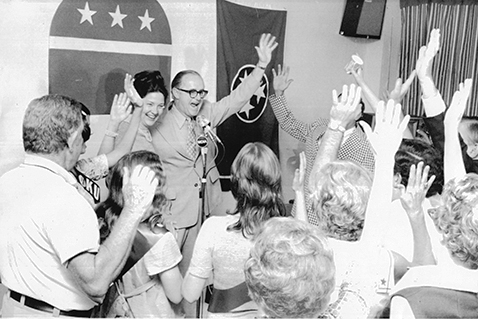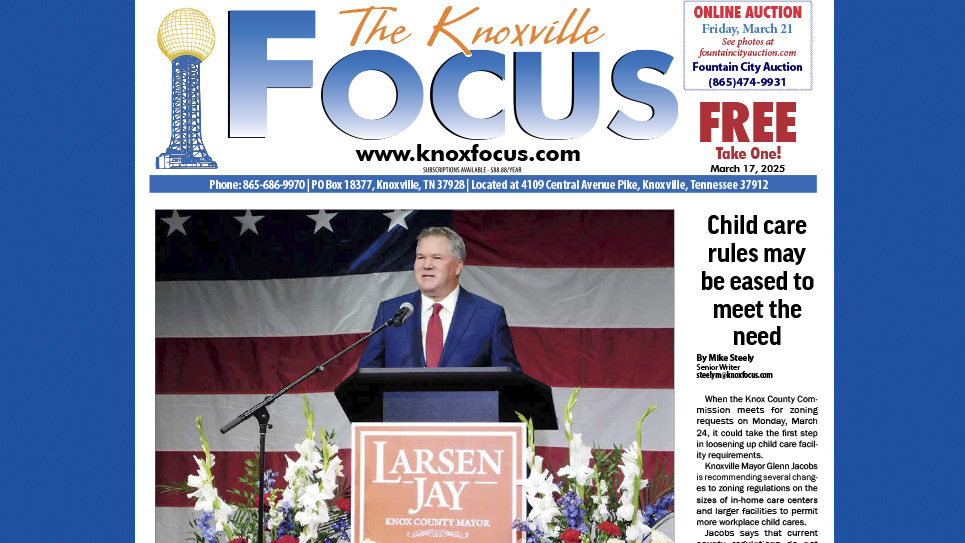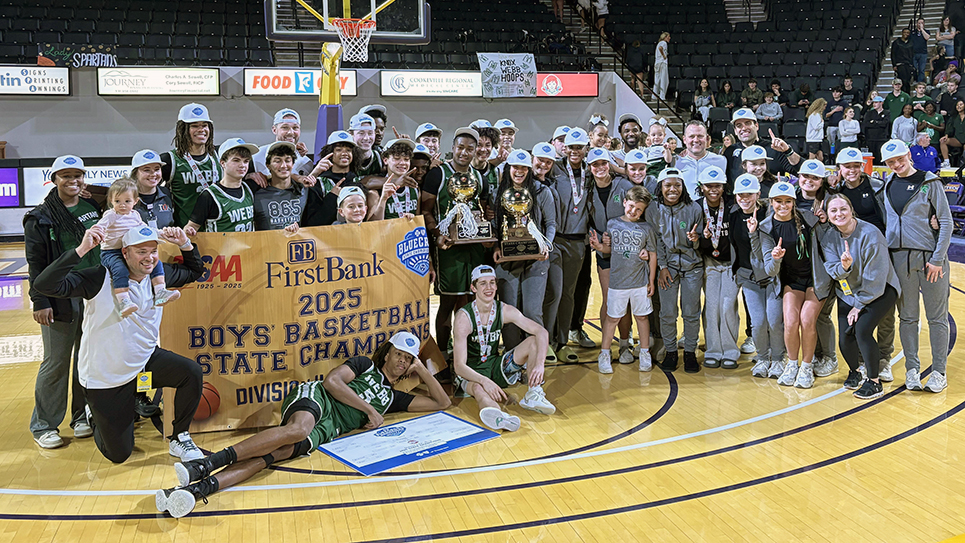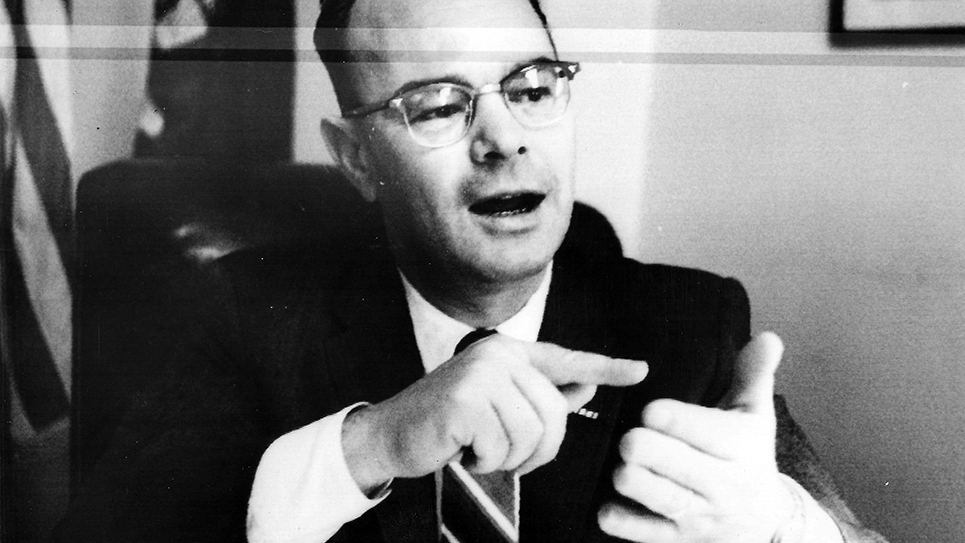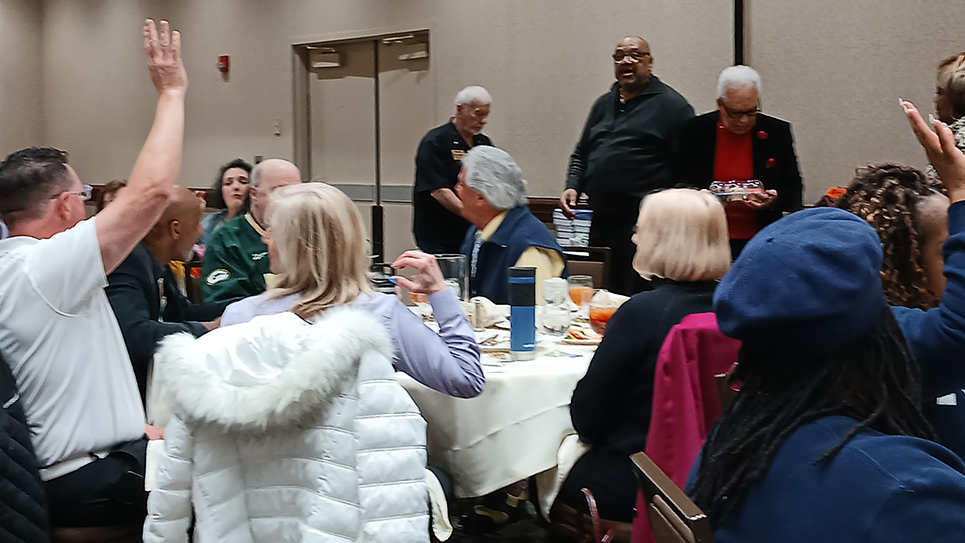Tennessee’s Modern Republican Party: Dan Kuykendall, Part VII
No Republican had represented West Tennessee in Congress since Reconstruction yet Dan Kuykendall was making a spirited challenge to incumbent George W. Grider to represent Memphis in the House of Representatives. Kuykendall, a native of Texas whose family had left Tennessee to follow Sam Houston to the Lone Star State, had come to Memphis for work with Proctor & Gamble. Later Kuykendall said “on a whim” he had begun volunteering to work in campaigns for Republican candidates. Dan Kuykendall had worked on behalf of GOP presidential nominee Richard Nixon in 1960 and had been the campaign manager for Republican Bob James who ran against Congressman Clifford Davis in 1962. James had shocked not only Congressman Davis but the entire political establishment when he came within 1,200 votes of upsetting the veteran representative who was the last vestige of the old Crump machine.
Memphis and Shelby County had once been the political domain of E. H. Crump, but when the Boss died in 1954, his machine began to disintegrate. Many of those who had backed Crump and his machine began drifting away from the Democratic Party. Even Crump had bolted it in 1948, refusing to support President Harry Truman, preferring instead States’ Rights candidate Strom Thurmond. Shelby County gave 26,396 votes to Thurmond, 23,854 to Truman, and 14,566 to Republican Thomas E. Dewey.
Crump had lived long enough to see Tennessee vote for Dwight D. Eisenhower and Richard Nixon in 1952, albeit quite narrowly; even in Shelby County the Democratic presidential candidate Adlai Stevenson won 71,779 votes to 65,170 for Eisenhower.
Eisenhower once again carried Tennessee in 1956 with Tennessean Estes Kefauver running as the vice presidential candidate with Stevenson. Richard Nixon won the Volunteer State decisively in 1960 over John F. Kennedy. Lyndon Johnson became the first Democrat to carry Tennessee since Harry Truman in 1948.
While Tennessee had boasted the occasional Republican governor, the Volunteer State had never voted to elect a GOP candidate to the United States Senate since popular election had chosen the state’s senators. Only twice had Tennessee Republicans really offered serious candidates for the U. S. Senate. The first instance occurred with the first popular election in 1916 when former Governor Ben W. Hooper faced Congressman Kenneth D. McKellar. Hooper’s 45% of the vote remained the high mark for a GOP candidate for the United States Senate until 1964. The second effort by Republicans to win a seat in the Senate had occurred in 1948 when former GOP National Chairman and congressman Carroll Reece thought it would be a banner year for his party. Virtually everyone but Harry Truman believed Tom Dewey would be elected president and the Republicans would sweep Congress. Reece was the GOP candidate for the U.S. Senate while country music legend Roy Acuff was the Republican nominee for governor. Reece and Acuff drew tremendous crowds, which frightened the Democrats but the GOP ticket won only a third of the ballots cast in the general election.
With both of Tennessee’s seats in the Senate up for election in 1964, Howard Baker and Dan Kuykendall won more votes than ever before received by GOP candidates for the U. S. Senate. Baker was running for the Senate once again in 1966 while Dan Kuykendall was the GOP nominee for Congress against freshman Democrat, Congressman George W. Grider.
Lyndon Johnson had won the election in 1964 in a landslide against GOP candidate Barry Goldwater. Numerous Republican incumbents had been swept out of office that year. The success of LBJ and the Democrats was beginning to tarnish, especially with inflation beginning to seriously affect Americans’ cost of living. GOP candidates across the country were pounding the hell out of the Johnson administration and Democratic incumbents over inflation. The GOP candidates in Tennessee were no different. Howard Baker hammered the Johnson administration, although his opponent in the general election, Governor Frank Clement, had not been in Congress to support LBJ’s agenda. Dan Kuykendall enthusiastically campaigned against the Johnson administration and labeled Congressman George W. Grider as a rubber stamp for the president.
Grider had some reason to be confident; he had received more than 42,000 votes in the August Democratic primary while Kuykendall had gotten a paltry 6,500 in the GOP primary.
As the possibility of a tax increase was considered by the Johnson administration, Dan Kuykendall snapped, “I’m not going to bail out the Great Society with a tax increase.” Congressman Grider, while saying he didn’t think a tax increase was necessary, stated he would vote for it if all else failed. Then as now, Democrats argued wages were running ahead of prices. Democrats insisted a smaller percentage of the average family’s budget was spent on food than at any time previously.
The race for Congress from Tennessee’s Ninth District overshadowed every other race on the ballot in Shelby County in the general election. The Memphis Commercial Appeal labeled the congressional race as “the hottest contest on the November ballot.” Congressman Grider and Dan Kuykendall differed on virtually every significant issue facing the people of Shelby County at the time. Basically, it could be boiled down to a single issue: Grider’s support for the administration of President Lyndon Johnson and Dan Kuykendall’s opposition to the “Great Society.” Grider attempted to downplay inflation, which was an issue with many American households and, not surprisingly, a real concern to many housewives who managed family budgets. Congressman Grider acknowledged inflation was “annoying”, but dismissed it as a major problem for Americans. Kuykendall pointed to the Johnson administration’s free spending on the domestic front while financing the war in Vietnam. Kuykendall said the spending policies of the Johnson administration had caused a decline in the purchasing power of families.
Grider had cause for concern when some Democrats openly defected to support Dan Kuykendall. Former Judge Beverly Boushe was the nominal head of “Democrats for Kuykendall.” Two former state senators, J. Weldon Burrow and Harry Scruggs, endorsed Kuykendall for Congress, as did former state Representative John Maxwell.
Boushe claimed to never have supported a Republican candidate before but said he was supporting Dan Kuykendall “because I think it my duty to do whatever I can to stop this downhill rush to centralized government and socialism.” “I hope other Democrats who feel as I do won’t be afraid to stand up and be counted,” Judge Boushe added.
The Nashville Tennessean, the state’s most vociferously Democratic newspaper, accused Kuykendall, “the Goldwater image in 1964,” of attempting “to whip up a white backlash” and “whatever else against U. S. Rep. George Grider, who has built an image of serving Memphis’ best interests.” The Tennessean claimed GOP hopes of electing Kuykendall had once run high but had diminished over time.
The Memphis Press-Scimitar declared one statement made by Dan Kuykendall its “quote of the week” in the middle of October. Both Kuykendall and George Grider had served in the Second World War; Kuykendall had been a pilot while Grider had commanded a submarine. “I’m not a military expert,” Kuykendall said. “The airplane I flew in World War II is out of date. And I believe my opponent’s submarine is out of date too. So I don’t think he is a military expert either.”
On October 23, 1966, the Commercial Appeal issued its endorsements for West Tennessee congressional races. The endorsement of Robert “Fats” Everett could have surprised exactly nobody. The Commercial Appeal endorsed Governor Frank Clement for the United States Senate over Howard Baker. In the race for the Ninth Congressional District, the Commercial Appeal endorsed incumbent George Grider. The editorial stated the election of Kuykendall “would mean lost time and doubtful outcome as the new man feels his way in unfamiliar territory.”
“I want to be remembered when I die that I was a member of the Education Congress, the 89th Congress,” George Grider said. The congressman praised the Johnson administration’s anti-poverty initiatives and claimed Congress was heading towards its goal of “breaking the hereditary cycle of poverty.” Congressman Grider sounded confident as Election Day approached. “I’m going back up there (to Washington) next year to continue these programs.”
On October 27, 1966, the Memphis Press-Scimitar endorsed the congressional candidacy of Dan Kuykendall. While the Press-Scimitar readily admitted George W. Grider was an honest and honorable man, as a congressman the newspaper concluded his record was “hurting this community and the rest of the nation.” The editorial went on to make the case against Grider, as well as a case for electing Dan Kuykendall. The Press-Scimitar openly disliked “the national Democratic Establishment’s philosophy, which has spawned an ever-growing, ever more powerful federal bureaucracy” which cheerfully ignored the increasing national debt.
That same day Gerald Ford, the Minority Leader in the House of Representatives, came to Memphis to campaign for both Dan Kuykendall and Julius Hurst.
The last week of the campaign was hectic for both candidates. The fifty-three-year-old congressman reiterated his support for the Great Society and President Johnson. The forty-two-year-old Dan Kuykendall heralded his support for free enterprise, law and order and fiscal restraint.
“When a man says he’s going to do a job and then he goes to Washington and does it, I think the people will agree to give him a second term,” Congressman Grider opined the day before the election. Grider saw little or no difference between the campaigns of Bob James and Dan Kuykendall; the congressman described both Republicans as “Goldwater obstructionists.” Grider thought Kuykendall’s campaign was motivated by the same “negativism and fear of the Federal Government” which had been the primary issue championed by Barry Goldwater in the 1964 presidential race. While campaigning, Grider ran into a woman who, as it turned out, informed the congressman she was from California. Grider asked who her congressman was and the lady replied she couldn’t remember, but said he was a Republican. “No wonder you can’t remember,” Grider replied. “He’s probably never done anything.”
Another woman “haughtily refused to accept” the congressman’s campaign brochure but immediately engaged Grider in a conversation to seek his help in obtaining her husband’s war record from the Department of Defense.
Kuykendall’s picture was liberally plastered all over the Ninth Congressional District and many people who had never met the GOP congressional candidate nonetheless called him “Dan.” One fellow asked, “How’s it going, Dan?”
“Well, we think we’re going to make it this time,” Kuykendall replied. “I’ll tell you, I’m tired of coming in second. I’ve decided moral victories are immoral.” The Republican candidate concentrated on personally meeting voters during the last week of the election, meeting and shaking hands with approximately 1,200 people daily. Kuykendall said of Congressman George Grider, “My opponent believes in what he’s doing, he’s fighting for what he believes in and for his political life. Should I lose, I would thank my people and wish him well, and hope he will have the same feeling toward me if he loses. I know he is sincere, and I consider him a gentleman.”
November 8, 1966, was Election Day in Tennessee and around the country. At a time when there was no early voting, voting by mail or the like, voters trooped to the polls to cast their ballots.
Most observers had thought the race between Congressman George W. Grider and challenger Dan Kuykendall would be close and it was. 1966 proved to be a very good year for Republicans across the nation and Tennessee was no exception. Dan Kuykendall led in the returns and the faces at the Grider headquarters reflected dismay and worry. Dr. Tom Stern, a strong supporter of Congressman Grider, tried to reassure his friends. “These are all strong Republican precincts in East Memphis.”
Dan Kuykendall bested George Grider with 47,489 votes to 43,553. Grider had only picked up 1,383 votes from his total in the primary election. Kuykendall had picked up 40,933 votes in the general election.
At 10:30 p.m. Congressman Grider climbed atop a table and the old submarine commander said, “Every time we sink we always surface later.”
Dan Kuykendall had just become the first Republican ever to be elected to Congress from West Tennessee since Reconstruction.

